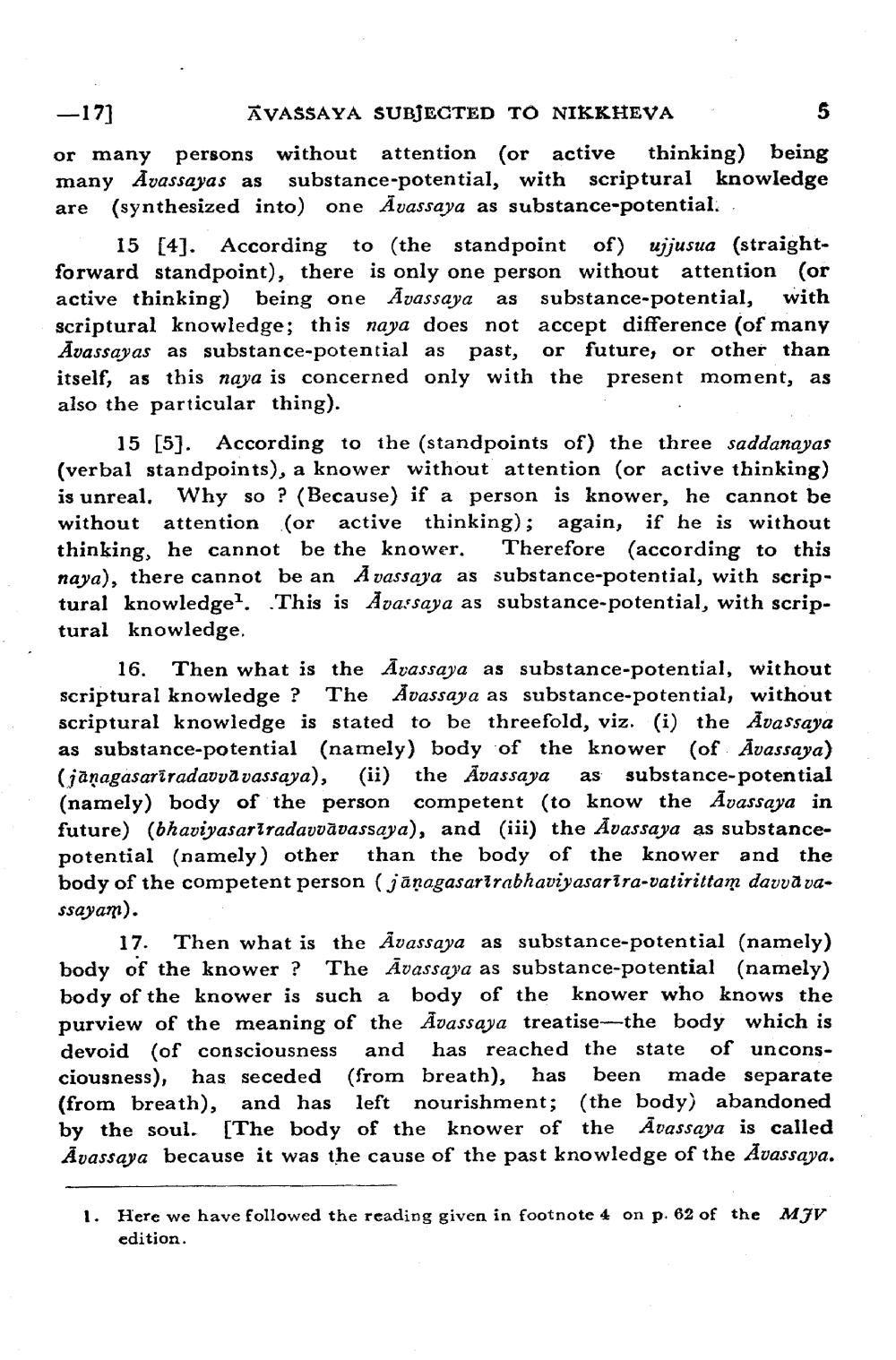________________
-17]
ĀVASSAYA SUBJECTED TO NIKKHEVA or many persons without attention (or active thinking) being many Avassayas as substance-potential, with scriptural knowledge are (synthesized into) one Āvassaya as substance-potential.
15 [4]. According to the standpoint of) ujjusua (straightforward standpoint), there is only one person without attention (or active thinking) being one Āvassaya as substance-potential, with scriptural knowledge; this naya does not accept difference (of many Avassayas as substance-potential as past, or future, or other than itself, as this naya is concerned only with the present moment, as also the particular thing).
15 [5]. According to the (standpoints of) the three saddanayas (verbal standpoints), a knower without attention (or active thinking) is unreal. Why so ? (Because) if a person is knower, he cannot be without attention (or active thinking); again, if he is without thinking, he cannot be the knower. Therefore (according to this naya), there cannot be an A vassaya as substance-potential, with scriptural knowledge. This is Avas saya as substance-potential, with scriptural knowledge.
16. Then what is the Āvassaya as substance-potential, without scriptural knowledge ? The Avassaya as substance-potential, without scriptural knowledge is stated to be threefold, viz. (i) the Avassaya as substance-potential (namely) body of the knower (of Avassaya) (jāņagasarīradavvā vassaya), (ii) the Avassaya as substance-potential (namely) body of the person competent (to know the Āvassaya in future) (bhaviyasarıradavvāvassaya), and (iii) the Avassaya as substancepotential (namely) other than the body of the knower and the body of the competent person (janagasarirabhaviyasarira-vatirittam davvāva. ssayam).
17. Then what is the Avassaya as substance-potential (namely) body of the knower ? The Āvassaya as substance-potential (namely) body of the knower is such a body of the knower who knows the purview of the meaning of the Avassaya treatise the body which is devoid (of consciousness and has reached the state of unconsciousness), has seceded (from breath), has been made separate (from breath), and has left nourishment; (the body) abandoned by the soul. [The body of the knower of the Āvassaya is called Avassaya because it was the cause of the past knowledge of the Avassaya.
1. Here we have followed the reading given in footnote 4 on p. 62 of the MJV
edition.




